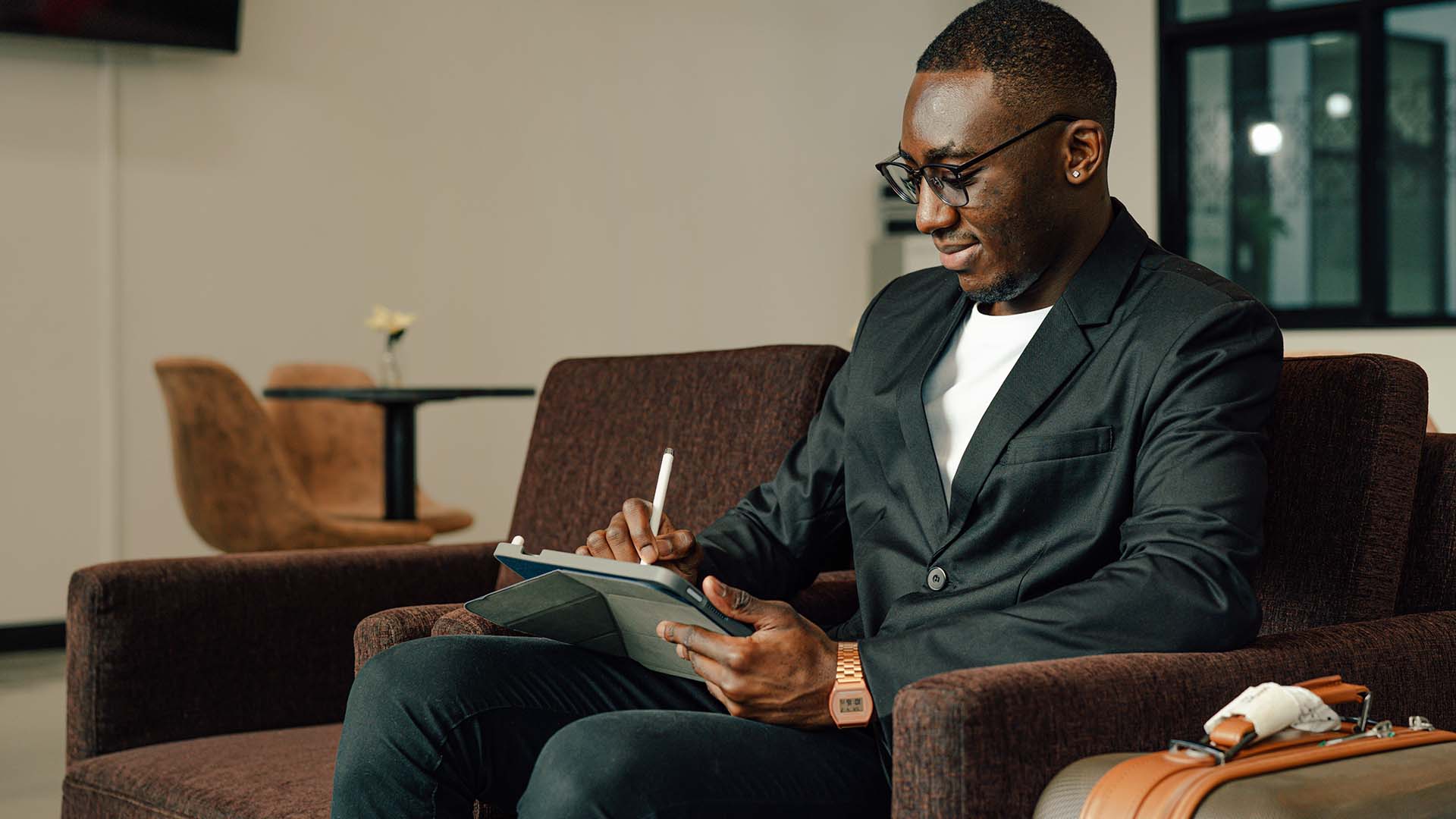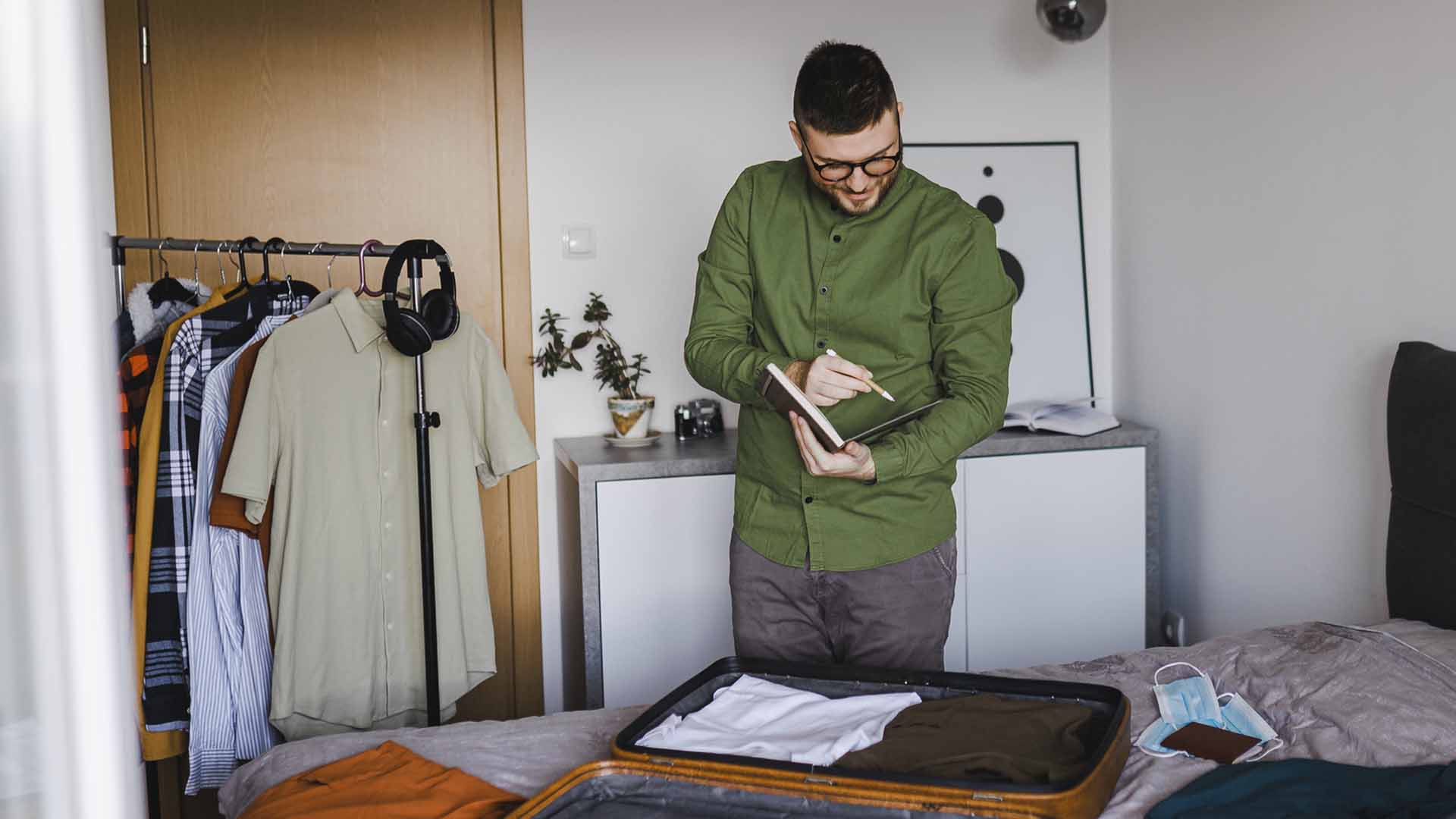Planning your first international trip? Whether you're heading off on a long-awaited holiday or travelling for business, the experience can bring equal parts excitement and anxiety as you check and double-check your arrangements. Are your passport and visa in order? Does your destination require any vaccination certificates? And what aren't you worrying about, that you should be?
Navigating unfamiliar airports, customs, and currencies is not something that is instinctive – but with a little preparation you can ease some of that anxiety and focus on the thrill of exploring somewhere new. These tips will help you travel confidently and safely from the moment you start packing to the day you return home.
1. Pack practically
One big bag is bulky and heavy, and if your baggage does go astray, you lose everything. Instead, if your flight ticket allows for it, pack smaller bags, which will be less likely to get lost all at once. However, stick to 2 or 3 bags at most – too many are hard to keep track of when you're constantly getting on and off planes, buses and trains.
Pack smart – pack your largest bag to be checked in, then pack a carry-on with a set of clothes and some essential toiletries, and another small backpack or handbag with your electronics, documents, cash, bank cards, and any other essentials that you'll need on your flight.
Remember essential items – like international plug adapters, prescription medicine, power banks, and chargers. When packing, it helps to have a checklist that you can tick off. Consult your doctor about any other health precautions to take. Pack a copy of your prescriptions for any chronic medication you take, in case you need to refill them while you're travelling.
2. Travel insurance is a must
Make sure your travel insurance covers medical emergencies, trip cancellations, and lost luggage. Speak to your service provider to make sure your policy includes coverage for any activities you plan to do, such as adventure sports. It's also helpful to check if you have 24/7 assistance services for emergencies.
You can use text-to-speech translations on your smartphone to bridge the communication barrier
3. Keep copies of travel documents
Store digital and printed copies of your passport, visa, and itinerary in a safe place. While you'll still need your original documents to travel, if they get lost or stolen during your trip, having copies on hand makes it easier for you to get temporary travel documents. It also helps to know where the South African embassy is at your destination, in case you ever need their help.
4. Be smart about foreign currency and payment methods
A Nedbank Travel Card lets you load up to 8 foreign currencies, so it makes payments simple even if you're visiting various countries in succession. Locked-in exchange rates mean you never have to worry about the rand suddenly losing value during your trip.
Carry a backup bank card to help you handle unexpected issues. Before you leave, activate your bank card for international travel so your bank will know that the transactions are legitimate, and your card won't be blocked for suspected fraud.
When you arrive in a foreign country, buying a local SIM card for your smartphone can help you avoid costly international roaming charges – some countries offer specific tourist SIMs tailored to short-term visitors. Or avoid the hassle of SIM swaps completely by getting an eSIM (if your phone is eSIM-compatible).
Not all businesses, especially local vendors, accept cards, so some cash in the local currency can be handy – you can order foreign currency for travel from Nedbank and choose whether to collect it at a branch, or have the foreign banknotes delivered to your door.
5. Learn how to navigate airports
Airports can be intimidating, especially going through customs on international flights. Watch social media videos of people posting about their experiences at the airport to get an idea of what to expect.
Be wary of airport wifi. Since it's an open network, it's easier for someone to hack into your devices. Use a VPN when connecting to public wifi and avoid accessing your banking details or other sensitive information.
If you plan to use the airport lounges, check the airport's website so that you don't waste time and energy trying to locate your rest stop.
6. Ask about upgrades and perks
Hotels and airlines sometimes offer free upgrades for special occasions. It's not a guarantee, but it's worth a try. If you're a member of a loyalty programme, you can earn rewards that can be used to get discounts on flights and accommodation. You may also get access to perks like later checkouts, express check-ins, and other complimentary services.
7. Use language translation apps
Instead of stumbling around with your phrasebook trying to pronounce common foreign phrases – and occasionally embarrassing yourself – you can use text-to-speech translations on your smartphone to bridge the communication barrier.
Travel is a luxury that not everyone gets a chance to experience, so make as many memories as you can
8. Find authentic food
The trick here is to go where the locals go – hotels and tour guides sometimes get kickbacks for recommending certain 'touristy' restaurants or stores. Just be wary of street food – an upset stomach can ruin your trip. A good tip is to stick to busy vendors, because they'll be making fresh food continuously.
9. Make public transport less intimidating
Not every country has the same public transport systems, and they're certainly not all created equal. Research the best ways to get around before you leave. Look into safe, reliable transport options, from public transport to ride-hailing apps. Get to know the routes, how to buy tickets and which apps are the most popular.
Some countries will allow you to drive with your South African driving licence, in which case, if you're comfortable being behind the wheel, you can hire a car.
10. Avoid jet lag
Jet lag is not a myth – your body is still trying to function according to your home time, but you've shifted time zones by several hours, so you're out of sync with the day-night cycle at your destination. After hours of travelling and layovers, this can get your holiday off to a rough start. Adapting to a new time zone can disturb your sleep patterns.
The easiest way to fight jet lag is to take it easy when you first land, but stay awake until nightfall if you can. This way, your body clock can adjust while you sleep, and you'll be up in the morning fresh and ready to start your adventures. Your doctor may also be able to suggest supplements to boost your energy or to help you sleep.
Get ready to jet off – with Nedbank
If you're a Nedbank client with an account linked to Greenbacks, you can get flight discounts of up to 30% on Greenbacks Travel. Find deals on all the travel accessories you need on Avo SuperShop, where you can use your Greenbacks to save even more on your shopping.
We also offer travel insurance, and it's included among several other benefits that come with certain Nedbank credit cards.








